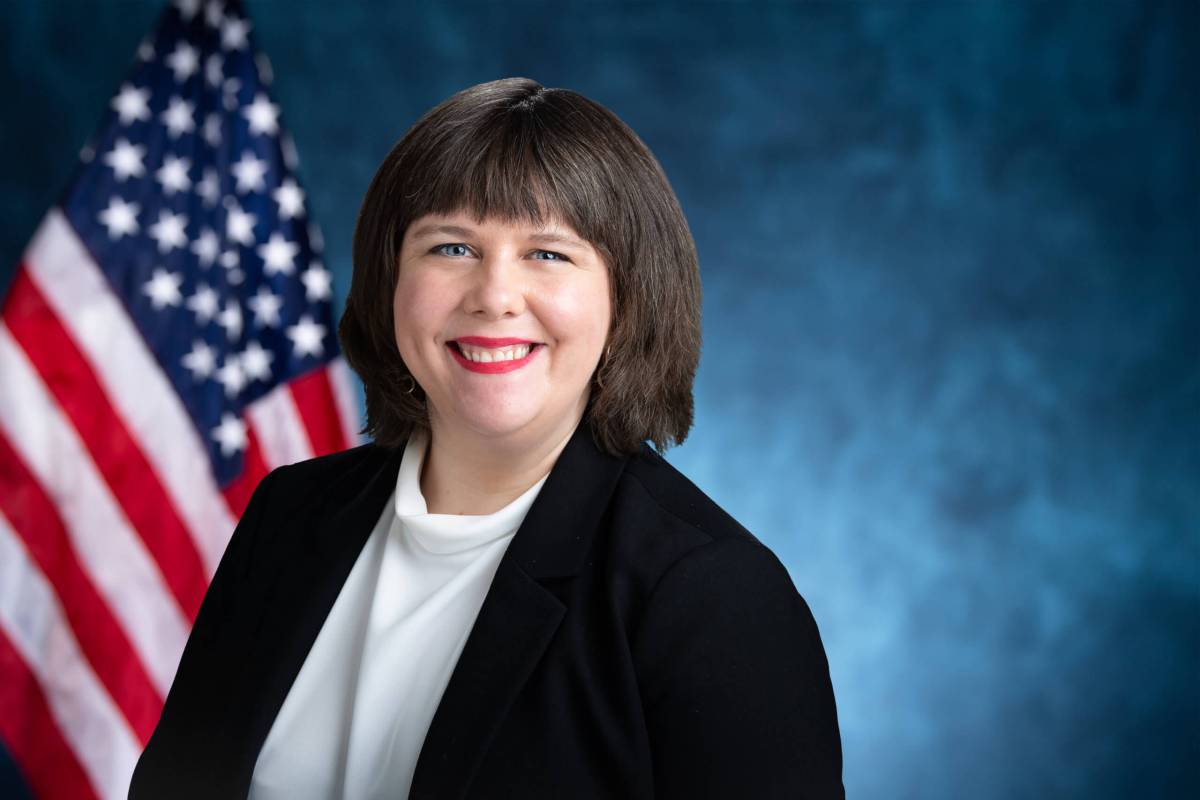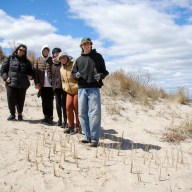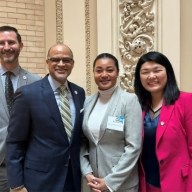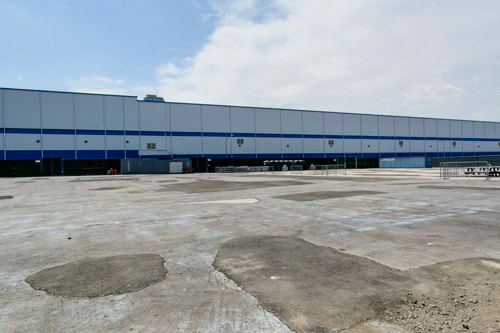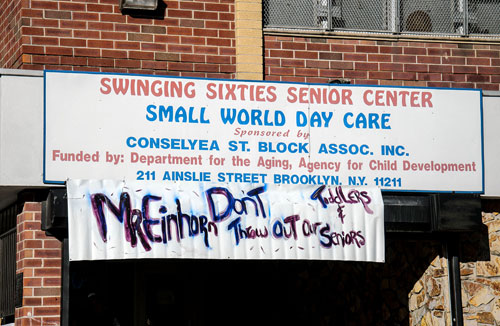Democratic Assemblywoman Emily Gallagher officially assumed office on Jan. 6 after defeating longtime incumbent Joe Lentol during the June primaries for the 50th Assembly District, which covers Greenpoint, Williamsburg, Clinton Hill, and Fort Greene.
Gallagher is among a stable of young and progressive political upstarts who unseated established incumbents in borough’s state races last year, ending Lentol’s almost half-century long career in public office.
Brooklyn Paper checked in with the freshman legislator to talk about her plans for the North Brooklyn district and the Albany legislature, which include raising taxes on the wealthy to fund New York’s COVID recovery, making the state elected office more transparent, and boosting environmental policies.
Note: this interview has been edited for clarity and brevity.
Brooklyn Paper: So what has it been like, the first couple of days and weeks in the Assembly?
Emily Gallagher: It’s been a relief to start. It’s been a really long waiting period that was kind of like a limbo where I was doing the work but I didn’t have the powers yet, so it feels really good to be really officially doing the work and having access to all the resources.
It’s been interesting to see how everything operates in Albany, I think that it’s not necessarily something we know as citizens.
BP: What are some of those interesting inner workings you’ve noticed?
EG: It’s been informative, but also I’m not sure what is happening because it’s the status quo or what’s because of the special circumstances with Zoom and the pandemic.
There’s a lot of places where we could grow to bring “little d” democracy to the table.
A lot of new folks are really concerned about transparency and how we’re going to make that happen by shifting the mores in the Assembly that limit the way things are done.
BP: Have you been up to Albany in person since getting elected or has it all been via Zoom so far?
EG: I went up for my orientation, but there was an incident where one of the staff members had COVID and everybody that was at the orientation was exposed. They were being very cautious about how they brought us in, but, you know, it’s hard to tell I think when you have COVID sometimes. Myself and the others that were there quarantined for a week. Luckily I wasn’t infected, but it was a good reality check for me. It kind of took away my thirst to be in person until this clears up.
Also I broke my ankle in December, so that’s another reason not to go up there. Being in the capital on crutches would be a nightmare.
BP: Well it’s good to hear you’ll be able to work remotely for now. As you start your first term, what are your top priorities, what are some of the issues you plan to tackle first in the coming weeks and months?
EG: My number one priority is to make sure that our district and our state really recover in a fair and just way from COVID.
I’m really pushing for a revenue package that is focused on taxing wealth and other forms of affluence that have been previously untouched. I think one thing that a lot of regular working people don’t realize is that the higher echelons of the upper class, they’re not living off of earned wages, they’re living off of compounded wealth. Once you start to realize that that’s where that level of billionaire or multi-millionaire comes from, it’s money that they won’t actually miss, whereas currently our focus is on taxing earned income which is money that really makes a difference to working people.
It’s a real uphill battle, but in this moment of the COVID crisis we can see the writing on the wall that this system doesn’t work and we need transformational change to build a better state.
I’m also really concerned about predatory real estate scooping up all the vacant storefront and properties that we’re seeing happen and I think small business protections are a major concern of mine. And of course stopping evictions and making housing and healthcare affordable and available for everyone.
BP: Your predecessor Joe Lentol occupied the seat since 1973. What lessons have you learned from his long tenure and what do you plan to do differently?
EG: He built strong relationships with folks which led him to have a devoted following locally so that’s something I’ve definitely learned is a positive, to make sure that you’re really available for the constituent concerns.
But I really appreciate more openness and more frank discussions about the connections between what’s going on here and there.
I’m viewing it as, my boss is the neighborhood, and even if an idea is not popular in Albany, I’m still going to bring it and voice it and be loud about it. I’m not gonna censor what can and can’t be done in advance. Try to give reality checks but also still go fight. My goal is to up the transparency factor.
BP: On a more local level for your district, what’s on the docket?
EG: I’m really looking for ways to fund and fight for the park space that we’ve been promised on the waterfront. I’m also really interested in connecting with the [Department of Environmental Conservation] around water quality issues and wastewater.
I think that the small business affairs issue is a priority for this neighborhood. We’ve always had a really diverse mix of small businesses and independently-owned businesses and we can see from looking at a place like the West Village how quickly that can get destroyed with predatory equity and things like that.
We are seeing a major trends with our calls around unemployment continuing to be a crisis.
Also I’m bringing a lot of awareness and knowledge from our struggles around the streetscape in North Brooklyn. Getting some more bicycle-friendly laws and also thinking more deeply about ways we can reform the [Department of Motor Vehicles]. We’ve seen so many tragic accidents in this community and the road to justice for victims of crashes — whether they’re pedestrians, other drivers, or cyclists — is really unclear.
BP: There are a lot of hyper-local environmental issues, like the North Brooklyn pipeline and the pollution of the Newtown Creek. What are your priorities with regards to those issues?
EG: The pipeline is such a great example of the way that we are allowing these major multi-billion-dollar companies to ignore the climate change law that we passed last time. I’m really interested in ways we can build in better accountability for companies.
The fact that we’re allowing National Grid to build this pipeline to hold gas that we made illegal in this state, it just shows that if you have enough money and sway you can get around these things.
A lot of the corporations that have a long legacy in this district of doing really detrimental work that ignores the population that lives here have to be more accountable and that can only happen by changing rules around how these companies operate. I really want us to move toward public power and utilities to just be renovated, it’s going to take a very long time, but I think it’s worth the time and the fight.
More locally, I’ve heard from advocates that they’d like to see a more holistic vision for the waterfront that is focusing on resilience and I think that’s really important. We have to really make sure that we’re putting some locks on what can and can’t be done on our waterfront.
BP: With a Democratic supermajority in both chambers this year, allowing legislators to overcome Gov. Andrew Cuomo’s veto, do you hope the lawmakers will play a bigger role?
EG: That’s absolutely my hope. At this point it’s a matter of political courage.
When you see things about Cuomo, really good civil servants wanting to commit suicide because of the pressure, amazing global figures like [former New York City Transit President] Andy Byford quitting because of the same kind of issues, you can see why people are afraid of him.
But it also makes you see that we have to change how we do things, this is not an acceptable interaction to be having with someone who is a Democratic leader.


